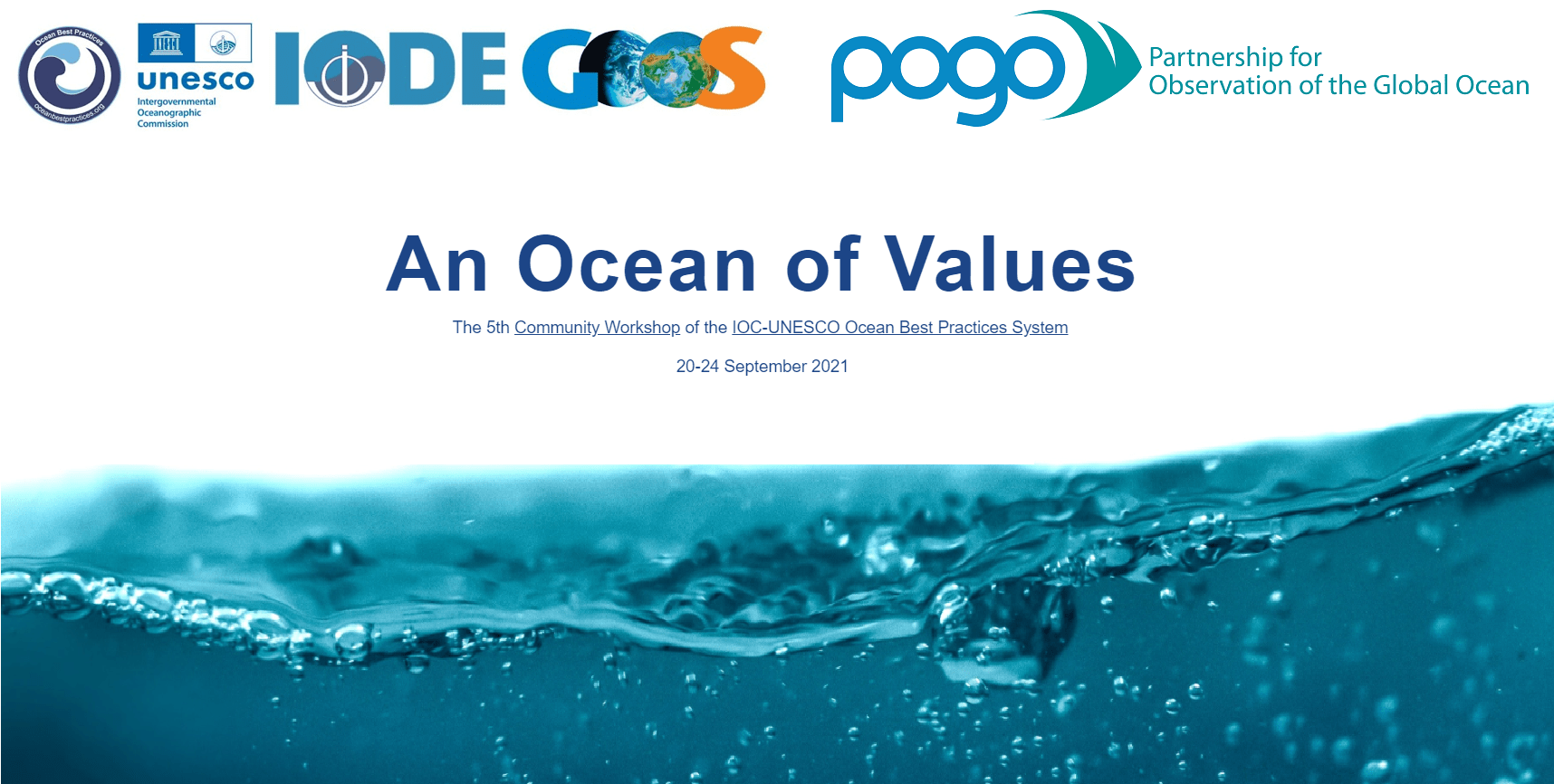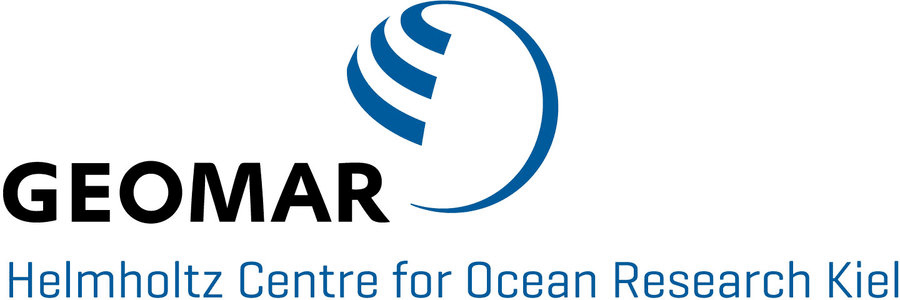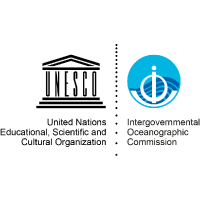POGO is providing support for “An Ocean of Values: the 5th Community Workshop of the IOC-UNESCO Ocean Best Practices System, 20 – 24 September 2021 [ONLINE]”.
Overview
Transparent and accessible methodologies are the cornerstone of trust between science and society. The IOC-UNESCO Ocean Best Practices Workshop Series has become a venue for representatives of the global ocean community to shape how the IOC’s Ocean Best Practice System (OBPS) addresses this challenging space, particularly as interactions between diverse ocean communities intensifies during the UN Decade of Ocean Science for Sustainable Development.
Scientific rationale:
The value of a methodology is context-dependent; thus, during the development of methodology management systems (MMSs) like the OBPS, we need to systematically understand what serves as a “best practice”, to whom, and when. During the workshop, each contribution will undergo a lightweight value chain or flow analyses (VCA, VFA) to understand how the practices they discuss add value to ocean observations, decision-making, cultural engagement, or other activities. We will synthesise these analyses into a collective web of value, and publish our findings as an open-access perspective article.
Societal benefits:
As a UNESCO system, the OBPS’ core mission is to serve society by safeguarding ocean methodologies as the basis of science, education, and culture. Improved appreciation of diverse value systems (see above) will support our work to connect practices which advance scientific value to those that advance societal goals. We are actively soliciting sessions and tracks focused on including societal stakeholders, particularly from underrepresented communities, to share their perspectives.
Policy relevance:
Policies, themselves, are a form of guideline and thus also archived and linked to other content in the OBPS. A key aim of this workshop is to gather policies and policy-relevant content which participating communities wish to be visible through the OBPS. Through our technologies and links to SDG reporting systems, we will channel this content into broader policy-aware document systems.
Global Context:
During this workshop, we aim to more systematically deepen the local relevance (both in terms of regional and thematic localisation) of the OBPS through our value analyses described above. By improving our understanding of these local values associated with ocean practices, we can ensure they are not lost or distorted as they are integrated into the OBPS’ globally oriented sub-systems. Indeed, an internal OBPS Task Team – focused on developing Key Performance Indicators based on value chain analysis – will be centrally engaged in this process.
We note that there exists a bias towards the representation of developed nations in the system (~70% of the 2020 workshop participants hailed from Europe or North America). During this workshop, we are allocating more effort to engaging participants from underrepresented ocean communities.
Relevance to POGO priority areas and fit with POGO’s strategy:
Innovation and development of ocean observing systems relies on the transfer of methodologies
across regions and generations. The OBPS is an internationally neutral and long-term archive of
ocean practices, with growing links to global ocean data systems. This workshop will allow
communities to influence how the OBPS supports innovation through methodology management.
This, in turn, will support POGO’s capacity development mission by advancing how the ocean
community shares its practical knowledge, catering to local needs in a global context. Lastly, the OBPS is situated in an intergovernmental system, and is actively developing links to industry to
bridge these sectors through the methods they use, rely on, or facilitate.
In terms of POGO’s values, the workshop will enable the OBPS to better connect excellent research
to relevant applications through our value flow analyses. Our open call for contributions and active
solicitation of diverse perspectives will enhance how the OBPS represents methodological records
and thus augment transparency across communities. Partnership and collaboration is at the heart of
this aim, and the knowledge shared through each contribution will guide more collaborative system
design to facilitate new forms of partnership building. With such advancements, this workshop will
help the OBPS support POGO’s mission to promote science- and evidence-based decisions by
providing clear methodological provenance.
In terms of POGO’s priorities, the workshop’s strategic insight will allow the OBPS to better support
communities in the transfer of methodological expertise across generations and regions: from
science, through operations, to policy. Through this workshop and its associated value flow analyses,
we aim to make the importance of well-documented ocean action increasingly clear across
communities that – at first glance – appear disconnected. We are confident that this will help
advocate for the support of trans- and interdisciplinary, multi-stakeholder approaches that weave
methods and values together for science-enabled sustainable development.

Status: Complete Project
Year: 2021
Project website
Project Participants
Leader
- Pier Luigi Buttigieg, Helmholtz Metadata Collaboration // GEOMAR Helmholtz Institute for Ocean Research, Germany
Participants
- Kelsey Leonard, University of Waterloo, USA
- Pauline Simpson, UNESCO /IOC Project Office for IODE, Belgium
- Cristian Muñoz,Institute of Marine Research, Bergen, Norway
- Juliet Hermes, South African Environmental Observation Network, South Africa
- Cora Hörstmann, Alfred Wegener Institute, Helmholtz Centre for Polar and Marine Research, Germany



